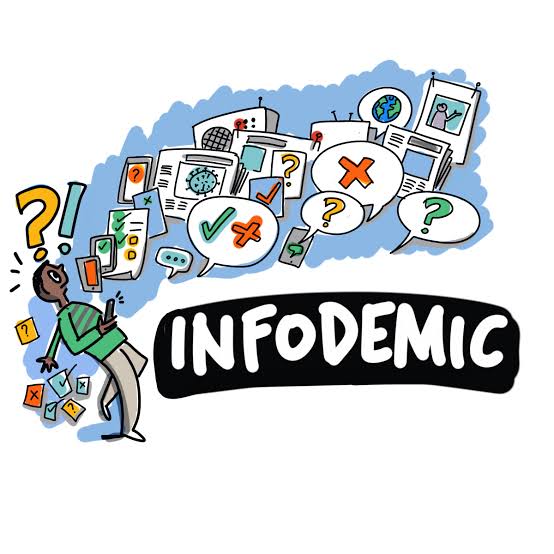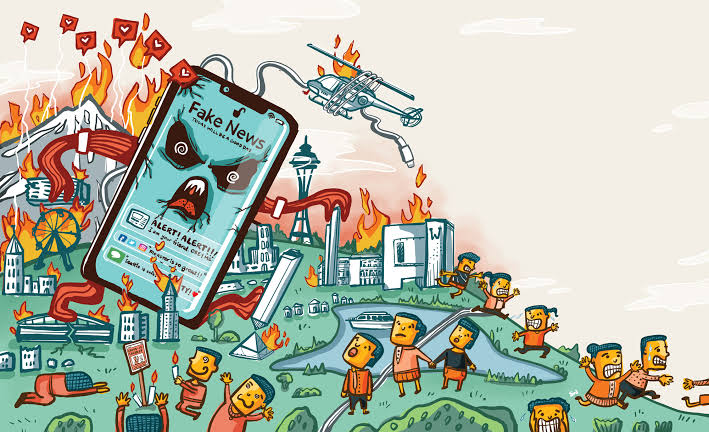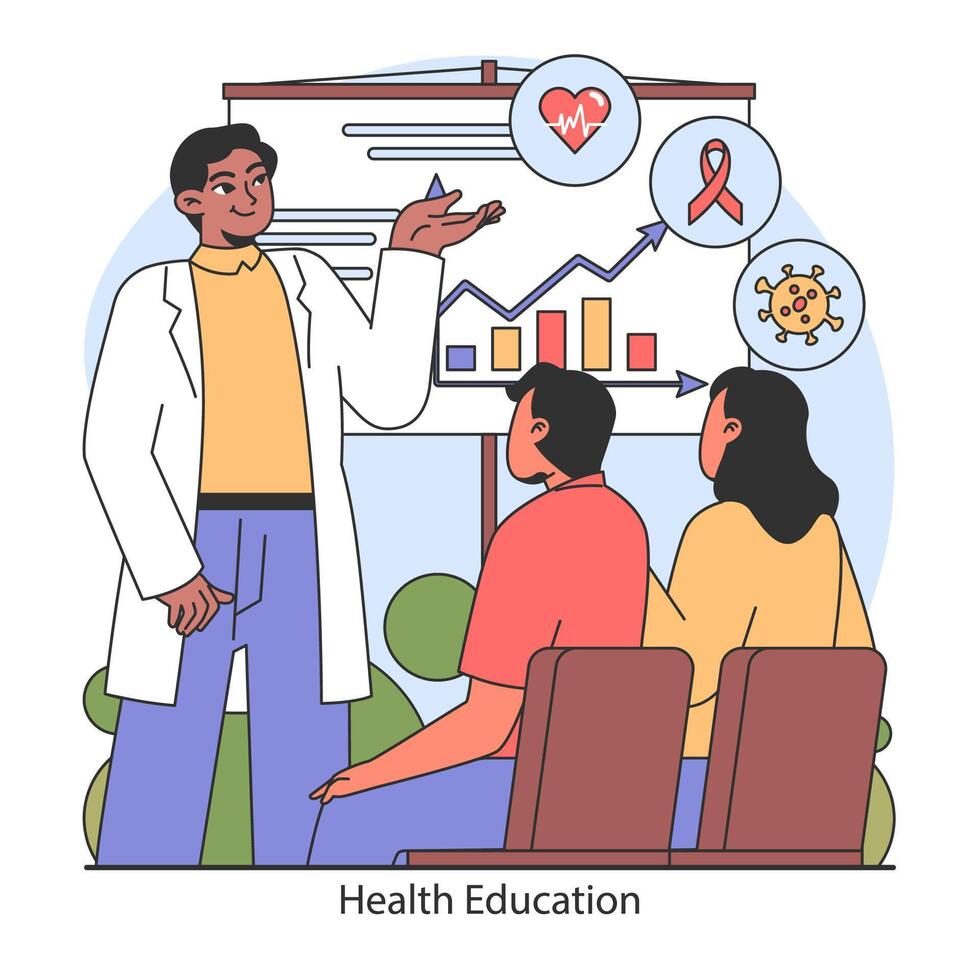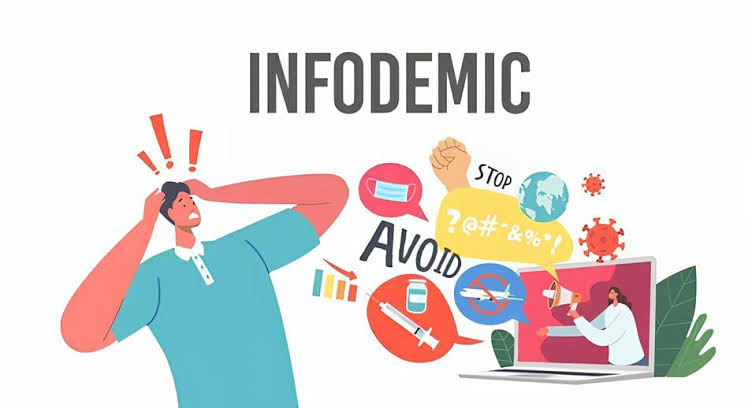Fighting the Infodemic: Health Education in the Digital Age

Introduction
In this 21st century, humanity is not only fighting diseases but also misinformation about them. The World Health Organization (WHO) coined the term “infodemic” to describe the flood of false or misleading information that spreads as fast and sometimes even faster than the diseases itself. During the COVID-19 pandemic, false claims about vaccines, miracle cures, and conspiracy theories went viral on social media platforms, often overshadowing credible medical guidance. According to WHO reports, this infodemic significantly delayed vaccine uptake in many countries and contributed to thousands of preventable deaths.
But the crisis of misinformation goes beyond COVID-19. It affects routine immunization programs, chronic disease management, maternal health, mental health awareness, and even nutrition advice. In an era where “Google Doctor” and WhatsApp broadcasts shape decisions more than qualified physicians, the urgent question becomes: How do we fight misinformation and rebuild trust in health communication?
The Infodemic: A Global Health Challenge
Infodemic is defined by the WHO as “too much information, including false or misleading information in digital and physical environments during a disease outbreak.” Unlike previous decades where information flow was slower, today’s interconnected world accelerates misinformation at an unprecedented speed.

During COVID-19:
A study (2020) showed that were various opinions and information spreading around on how to cures—like ingesting some mixtures or using herbal concoctions—spread faster than verified medical guidance.
In some parts of the world, rumors about infertility caused by COVID-19 vaccines discouraged many young adults from taking the it which was not entirely true.
The danger is simple but devastating: misinformation costs lives and spreads the wrong narrative . When people distrust credible health sources, they turn to unverified alternatives, delay treatment, and sometimes reject proven preventive measures.
Why Misinformation Spreads Faster Than Truth
Misinformation spreads fast in our current day because everyone has access to the Internet and are quick to believe what they see on their screen without actually cross checking facts.
Emotional Appeal: Fake health news often uses fear or hope to grab attention. A dramatic claim like “This herb cures cancer overnight” spreads faster than a nuanced scientific article.
Echo Chambers: Algorithms on platforms like Facebook, TikTok, and X (Twitter) show users content they already agree with, reinforcing misconceptions.
Distrust of Institutions: Years of corruption scandals, weak healthcare systems, and political interference have made many communities suspicious of government-led health campaigns.
Information Overload: In a world of infinite scrolls, people lack the time to fact-check everything. The most sensational content usually wins.
Health Education in the Digital Age: New Strategies
If misinformation thrives in the digital space, then health education must adapt to this reality. Traditional methods, pamphlets, lectures, radio jingles, still have value, but they cannot compete with the speed and virality of TikTok videos or WhatsApp forwards or a blog post.
Here are the evolving strategies shaping health communication today:
1. Leveraging Community Leaders
Research shows people trust familiar figures more than distant institutions. During Ebola outbreaks in West Africa, local chiefs and religious leaders played crucial roles in dispelling myths about burial practices and infection spread.
In Nigeria, for example, imams and pastors who openly endorsed COVID-19 vaccines helped counteract fear in their congregations. Trust is local, and public health campaigns must harness that.
2. Harnessing Artificial Intelligence (AI)
AI-driven fact-checking tools are emerging as game changers in the fight against misinformation.
WHO’s EARS (Early AI-supported Response System) scans social media to detect trending health misinformation.
Chatbots like WhatsApp’s COVID-19 helpline gave millions of people in Africa access to verified, real-time health updates in multiple languages.
AI can also create localized health campaigns tailored to community beliefs and culture, making credible information more persuasive.

3. Collaborating with Influencers
In the digital age, influencers have more reach than many official agencies. TikTok dancers, YouTubers, and Instagram lifestyle bloggers can normalize preventive practices like mask-wearing or mental health checkups in ways traditional campaigns cannot.
4. Building eHealth Literacy
Ultimately, the fight against misinformation cannot rely solely on censorship or top-down campaigns. Citizens must be empowered to critically evaluate online health information. This means teaching digital literacy, how to check sources, identify fake news, and differentiate science from opinion.
Schools, universities, and community groups should integrate media literacy into their programs, just as they teach basic hygiene or first aid.
5. Multilingual and Culturally Relevant Messaging
Credible information often fails because it is too technical or only available in English. Health communication must speak in local languages, using relatable metaphors, visuals, and storytelling, translating fact sheets into Pidgin, Hausa, Igbo, Yoruba, and Swahili can prove to be beneficial in reaching wider audiences.
Africa’s Experience with the Infodemic
Africa can actually utilize unique lessons and ways in balancing traditional and digital communication.
For example, community radio stations working alongside with registered NGOs, Private institutions and even government institutions in curbing rumors about health matters in rural areas.
Social media campaigns promoting insightful benefits of vaccination can combat and put an end to conspiracy theories rooted in past government failures and misconception about certain vaccines.
Also across the continent, mobile penetration has made various social media the new “town square,” making to be both a blessing and a curse for public health communication.
The challenge now is for ministries of health and NGOs to integrate grassroots methods with digital strategies, ensuring no population is left behind.
Why This Matters
The infodemic problem is not going away if no strategic measures are put in place. From monkeypox outbreaks to mental health stigma, misinformation remains a global threat. Even in areas like nutrition, myths about “miracle weight loss teas” or “detox cleanses” dominate social media.
As climate change and migration introduce new health crises, misinformation could make future pandemics even harder to control. Investing in resilient, digital-first health education systems is no longer optional, it is survival.
A Call to Action

Governments, health agencies, and citizens all have a role to play:
Governments must regulate without censoring, ensuring platforms are accountable for harmful health misinformation. Tech companies must refine algorithms to elevate credible sources, not conspiracy theorists. Health workers must adapt to digital communication, moving beyond clinics to TikTok, Instagram, and WhatsApp. Citizens must take responsibility for verifying before sharing. “We’re not just fighting a virus or outbreak of diseases; we’re fighting an infodemic.”
The war on misinformation is a war for lives. Winning it requires creativity, technology, and above all, trust.
Conclusion
The digital age has revolutionized access to health information, but it has also created a wildfire of misinformation. Fighting the infodemic demands a blend of innovation and tradition, from AI-driven fact-checking to community-driven trust-building.
Health education is no longer about one-way communication; it’s about engagement, storytelling, and empowerment. If the world can rise to this challenge, other outbreaks or health matters may be remembered not just for its impact or how deadly it was but for how humanity learned to fight misinformation as fiercely as disease itself.
Recommended Articles
Super Eagles Star Victor Osimhen Unveils Tragic Personal Story and Fuels Transfer Speculation
)
Super Eagles star Victor Osimhen recently shared the profound impact of his father's death, revealing how club interests...
Google Unleashes AI to Combat Fake Images in Search Results

Google has launched a new fact-checking feature for its image search, aiming to combat misinformation by displaying fact...
Norovirus Alert: Winter Vomiting Bug Surges 60%, Health Chiefs Urge Two-Day Self-Isolation!

UK health authorities are reporting a significant surge in norovirus cases, especially among the elderly and in hospital...
Tragedy Strikes: World's Heaviest Man Dies at 41 After Battle with Kidney Infection

Juan Pedro Franco, once recognized as the world's most obese man, has died at 41 due to a kidney infection. His remarkab...
Kenya's Mobile Money Shake-Up: Safaricom & Banks End Free Transfers Amidst Revenue Crisis!

Safaricom and Kenyan commercial banks are in talks with the Central Bank of Kenya (CBK) to end the zero-rated mobile mon...
You may also like...
Be Honest: Are You Actually Funny or Just Loud? Find Your Humour Type

Are you actually funny or just loud? Discover your humour type—from sarcastic to accidental comedian—and learn how your ...
Ndidi's Besiktas Revelation: Why He Chose Turkey Over Man Utd Dreams

Super Eagles midfielder Wilfred Ndidi explained his decision to join Besiktas, citing the club's appealing project, stro...
Tom Hardy Returns! Venom Roars Back to the Big Screen in New Movie!

Two years after its last cinematic outing, Venom is set to return in an animated feature film from Sony Pictures Animati...
Marvel Shakes Up Spider-Verse with Nicolas Cage's Groundbreaking New Series!

Nicolas Cage is set to star as Ben Reilly in the upcoming live-action 'Spider-Noir' series on Prime Video, moving beyond...
Bad Bunny's 'DtMF' Dominates Hot 100 with Chart-Topping Power!

A recent 'Ask Billboard' mailbag delves into Hot 100 chart specifics, featuring Bad Bunny's "DtMF" and Ella Langley's "C...
Shakira Stuns Mexico City with Massive Free Concert Announcement!

Shakira is set to conclude her historic Mexican tour trek with a free concert at Mexico City's iconic Zócalo on March 1,...
Glen Powell Reveals His Unexpected Favorite Christopher Nolan Film

A24's dark comedy "How to Make a Killing" is hitting theaters, starring Glen Powell, Topher Grace, and Jessica Henwick. ...
Wizkid & Pharrell Set New Male Style Standard in Leather and Satin Showdown

Wizkid and Pharrell Williams have sparked widespread speculation with a new, cryptic Instagram post. While the possibili...
